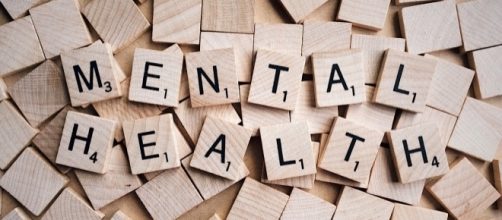When Madalyn Parker sent an email to her work team, she told them exactly what was wrong. She said she'd be out of the office for a few days to focus on her mental health.
Her boss, Ben Congleton, CEO of Congleton, wrote back to her. "I can't believe this is not a standard practice at all organizations," read part of his email. "You are an example to us all and help cut through the stigma so we can all bring our whole selves to work."
Parker, at 23 years of age, already suffers from depression, chronic anxiety, and PTSD, and she had the courage to write the truth to her co-workers about why she needed the time off.
The stigma
Many well-qualified people will turn down a newly-offered position because they are afraid someone will discover their condition. I know this because it happened to me. I also know that mental health issues are difficult to talk about openly. When I was in a position of authority, I was terrified people would find out I had generalized anxiety disorder and with it, Crohn's disease.
Toxic work environments
The first time I was employed by someone other than myself, I fully expected the experience to be wonderful. I didn’t have to worry about employees and just had to worry about myself. For my first retirement job, I’d been hired to produce a radio show and to ghost a book the author wanted done.
One afternoon, my co-workers were bashing the owner. I intervened and told them how difficult it was to be the boss. I tried to explain what people went through when they were the sole responsible person to a group of employees and to not judge her so harshly.
I have never seen a pack of women turn on someone so quickly and cruelly. I was shocked at their viciousness and although I was tempted to tell the owner about the situation, I didn't, and left shortly thereafter. On a happier note, the book I ghosted did win an award.
Many people develop severe anxiety due to their work environment, myself included. It took me months to work through what happened because of the cognitive dissonance it caused.
I had no idea that women could be so toxic. When someone is perceived by others as a threat, that activates their own anxiety issues. By defending the owner, I had clearly placed myself out of their camp and had to go.
Because of the varying issues with mental health, Madalyn Parker has become my hero. Though she may not know it, she spoke not just for herself but for all of us who suffer with a mental health issue. I'd like to say thank you to her for standing up when so many of us still hide in the shadows.
I headed out to my Facebook friends to get their opinions on mental health days. I asked them:
Do you think sick days should include mental health days? Also, have you ever worked in a toxic work environment that contributed to your anxiety and/or depression?
These were some of the responses I received:
Jenn: "Yep. I wish I could actually GET paid sick days. Small company. No luxury here. Trust me, I need a freaking mental health week after Tax Season is over."
Louann T: "Yes, there are all kinds of illnesses and sicknesses that people have to deal with."
William: "Reasonable concept but such a slippery slope with individuals who take advantage of it at the cost of those who truly need it."
Cyani: "Yes. Mental health is just as important as physical health, yet it's so neglected."
Debbie: "Of course they should!"
Luanne W: "I've always taken them - they didn't know that's what they were, but I did."
Susan A: I usually take one personal day a year for that reason, during the Spring months.
Samantha B: Absolutely. And whether your plan includes mental health days or not, many people use them when they need them. When you call in sick you don't have to say what kind of sick you are.
Debbie C: It's called a vision problem... I just can't SEE coming into the office today!
Marilyn: Yes absolutely ❣️
Conclusion
According to psychologists, our brains are hardwired to be constantly on the lookout for life-threatening events. In today's society, we don't have many threats, and so our brains begin to interpret semi-stressful events as serious threats. It is not because our brains are broken that we have these issues. It is because those of us who are anxiety-ridden today, survived the past. And even though anxiety is no longer needed, it is always possible that in some future time, anxiety will no longer be a mental health issue, but once again a survival mechanism.


